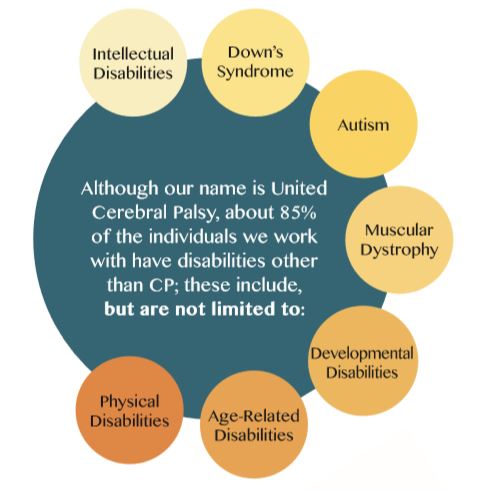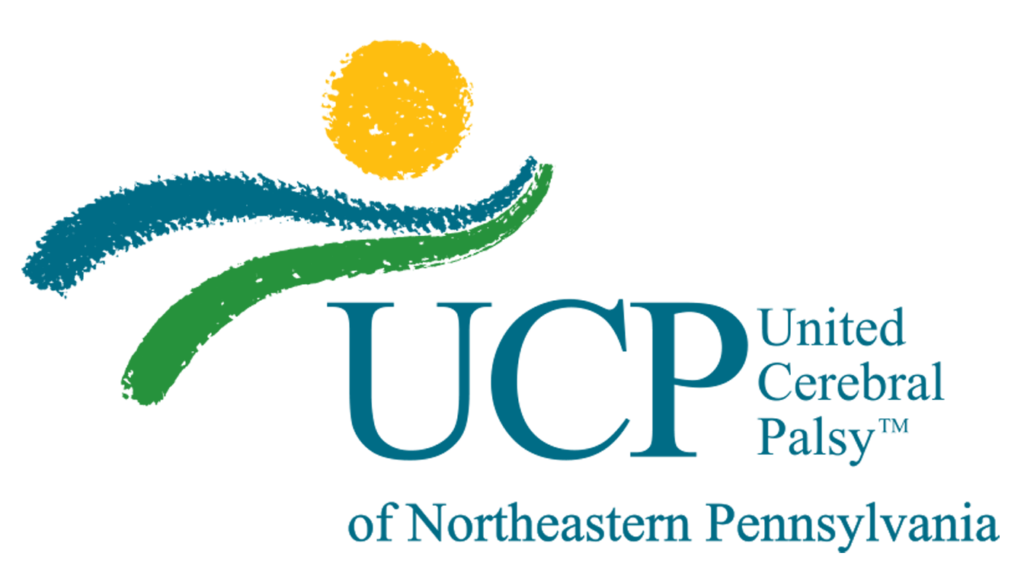
The term cerebral palsy actually refers to a number of disorders characterized by impairment in body movement, posture and/or muscle coordination which are a result of damage to the developing brain. The brain damage, in turn, can be caused by a disruption in oxygen supply during fetal development, or by injury or infection.
Read More: Cerebral Palsy Fact Sheet
Previously known as mental retardation, Intellectual Disabilities are characterized by below average IQ (70 or less) and a lack of skills necessary for daily life. Most persons with intellectual disabilities can learn new skills, but they do so more slowly. Intellectual disabilities range in severity from mild to profound and they can be caused by genetic factors, problems during pregnancy or childbirth, or some illnesses or injuries.
Down Syndrome is a genetic disorder associated with mild to moderate learning disabilities or developmental delays along with low muscle tone and other physical characteristics. Typically, a person has 23 pairs of chromosomes. Down Syndrome happens when there is an extra copy of chromosome 21 or, in rarer cases, some extra chromosome 21 genes and not an entire copy.
Autism or Autism Spectrum Disorders are actually a group of neurodevelopmental disorders characterized by social impairment, cognitive impairment, communication difficulties and/or repetitive behaviors. It is believed to be genetic.
- Autism Speaks
- National Autism Association
- PAautism.org - A Pennsylvania Bureau of Autism Services Initiative
In Muscular Dystrophy, a genetic mistake prevents the body from manufacturing a protein that helps build and maintain muscle. There are several types but muscle weakness is a factor in each. Symptoms vary and range from mild to severe and even age of onset of symptoms differs.
Spina Bifida is a neural tube defect in which the bones of the spine do not fuse properly around part of the spinal cord. In the mildest form, spina bifida occulta, there may be no functional signs at all. The more serious types, meningocele and myelomeningocele, involve nerve damage which can impact walking, bladder and bowel control as well as other functions.
Brachial plexus palsy (also called Erb's Palsy) is paralysis or weakness of the arm caused by an injury to one or more nerves that control the muscles of the shoulder and upper extremities. In newborns, it can be caused by a difficult delivery while the cause for adults is typically trauma to the brachial plex network - nerves that send signals from the spine to the shoulder, arm and hand.
Also known as Wryneck, Congenital Torticollis is a condition in which the baby's head is tilted and points toward one shoulder. It is caused by a shortened neck muscle (sternocleidomastoid) which runs up the back of the neck. Treatment is necessary to prevent the baby's face and skull from growing unevenly and to prevent limitations in motion. Treatment involves stretching the neck muscle several times a day. Our physical therapists can show the parents how this is done.
